URBANREC
Dry thermophilic semi-continuous anaerobic digestion of food waste: Performance evaluation, modified Gompertz model analysis, and energy balance
A thermophilic, dry semi-continuous anaerobic digestion (DScAD) method was used to effectively transform food waste (FW) into renewable energy. This study aims to thoroughly evaluate the system performance and model simulation to predict biogas production, intermediate products and their outcomes, energy recovery potential, and energy balance, while operating with organic loading rates ranging from 2.3 to 9.21kg-TS/m3 day. The results indicate that volatile solids (VS) reduction and biogas production both improved as the organic loading rates (OLR) increased, and the cost of FW valorization remained low. The greatest VS reduction achieved was 87.01%, associated with 170m3 of biogas yield per ton of sludge (69% methane) at an ORL of 9.21±0.89kg-TS/m3 day (8.62±0.34kg-VS/m3 day) although the amounts of ammonia (3700mg/L), hydrogen sulfide (420ppm), and total volatile fatty acids (7101mg/L) during fermentation were relatively high. Furthermore, 75% of total energy requirement for the system could be recovered via biomethane production, resulting in a considerably reduced specific energy supply (kWh/ton of treating FW). The results suggest that a modified Gompertz model is suitable for estimating the biogas and methane production potential and rate. The results also reveal that the DScAD of FW at 55°C is a reliable, stable, and robust option for both solids reduction and energy recovery via biogas generation.

» Author: Dinh Duc Nguyen, Soon Woong Chang, Seong Yeob Jeong, Jaehoon Jeung, Sungsu Kim, Wenshan Guo, Huu Hao Ngo
» Reference: Energy Conversion and Management, Volume 128
» Publication Date: 15/11/2016
» More Information

This project has received funding from the European Union's Horizon 2020 research and innovation program under grant agreement Nº 690103




URBANREC Guidelines by URBANREC Consortium is licensed under a Creative Commons Reconocimiento-NonComercial-NoDerivatives 4.0 Internacional License.
Puede hallar permisos más allá de los concedidos con esta licencia en www.aimplas.net
